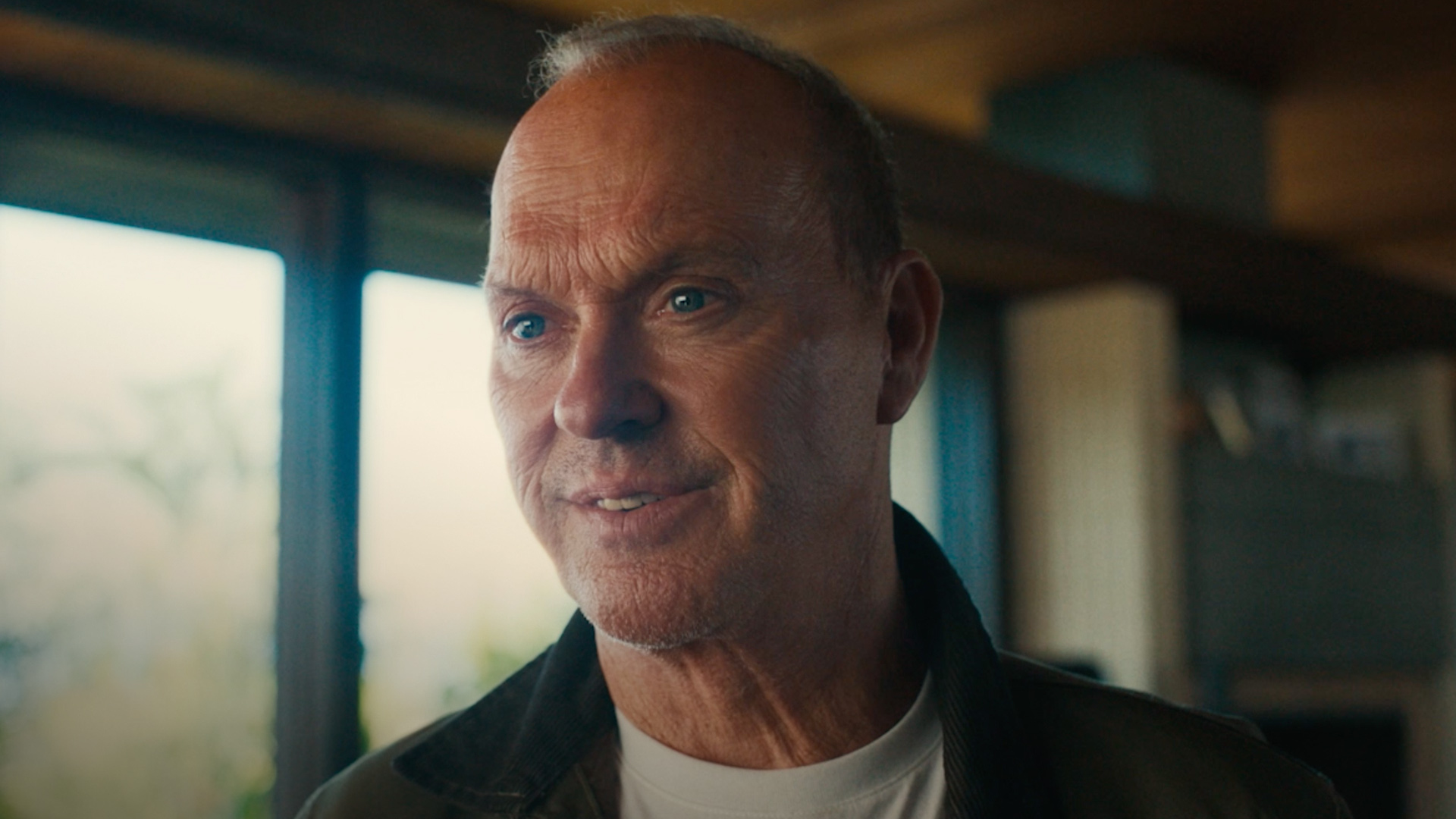The absolute epitome of what another critic I know refers to as “gas leak cinema,” Hallie Meyers-Shyer’s sweetly deranged “Home Again” — starring Reese Witherspoon as a single mom who invites three cute and aspiring young filmmakers to stay in the guest house of her palatial Brentwood home — is the kind of rom-com that feels like it was made by aliens whose only exposure to our species was an intercepted satellite feed of the Hallmark Channel. Everyone is beautiful, no one’s decisions make sense, and the only remotely pressing conflict is whether Reese’s new houseguests will be able to attend her daughter’s school play (they’re scheduled to meet with a financier at the same time, the perfect subplot for a film in which money seems to exist in an infinite supply).
In other words, “Home Again” is exactly what I hoped to see from the offspring of Nancy Meyers and Charles Shyer; leave normal movies to normal people, I want to know what the world looks like through the eyes of a bright-eyed nepo baby who probably grew up thinking that “Something’s Gotta Give” was a neo-realist slice of life.
In that light, I was saddened — if only at first — to discover that Meyers-Shyer’s follow-up is a bit more down to earth. The movie still takes place in a blithely affluent version of Los Angeles where even the most grounded characters act like they’ve suffered traumatic head injuries, but with a title like “Goodrich” (a surname that doubles as a socioeconomic worldview), I was happily primed for an experience so privileged and solipsistic that it made “Home Again” seem like a Safdie brothers movie by comparison.
The movie I got instead was less insane but somehow more satisfying, a sweet and scatterbrained little comedy that pours its fizzy bottle of champagne problems into a charming — and surprisingly relatable! — sketch of fatherhood in motion. Nothing about it feels the least bit real, but nothing about it feels dishonest either.
While Meyers-Shyer might not be especially in touch with the modern world that she uses as a backdrop for her work, she’s learned how to make that disconnect feel like more of a feature than a bug. It’s a skill that runs in the family, and with “Goodrich,” Meyers-Shyer has weaponized the “gas leak” movieness she inherited from her parents in order to more effectively tell a coming-of-old-age story about a man who learns that he doesn’t have to choose between real love and rom-com absurdity. He can afford to have both.
His name is Andy Goodrich, he’s a successful gallery owner played by Michael Keaton (his sweetly bumbling performance all pinched cheekbones, arched eyebrows, and half-finished thoughts), and he’s awoken in the middle of the night by a phone call from his much younger wife: She’s checking herself into rehab for a prescription pill addiction and sticking her septuagenarian husband with their twin nine-year-olds for the next 90 days. Except, he’s not really her husband anymore, because she’s also leaving him.
Needless to say, this is a lot for Andy to process at once, especially because he’s the only person on Earth who didn’t know his wife had a prescription pill addiction. Even the kids’ no-nonsense babysitter knew about that (she’s fresh out of the Israeli military, an errant character detail that’s dropped into the middle of this light and bouncy comedy with all the fun of a lead balloon). Andy isn’t a bad guy (he’s as good as he is rich), but his amiable tunnel-vision has made him an absent father, and there’s a price to pay for being the kind of passionate careerist who sees his family as an impediment to his work.
The fact that he has more than enough money to retire only makes it that much easier for his three kids to resent his priorities. While the twins are just starting to see the situation for what it is, Andy’s daughter from his first marriage has been living with it for the last 40 years, and when the movie starts Grace (Mila Kunis) is pregnant with another child her father will probably love to death even as he looks right through them. Then again, life is always changing, much as Andy might not want to change with it. With his “wife” in rehab and his gallery in dire financial straits, perhaps the time has finally come for Andy to reassess what’s really important to him.
There isn’t a ton of narrative firepower behind that premise, and “Goodrich” doesn’t lock into a clear plot so much as it pleasantly shambles from one semi-related incident to another (the “Philip Glass on Lexapro” shimmer of Christopher Willis’ score has an upbeat way of spackling over the gaps). Meyers-Shyer makes it clear that Andy’s gallery will go under if he doesn’t land another major artist soon, but the stakes are purely emotional in nature, and the movie — to its credit — doesn’t pretend that any of its characters would be out on the street if they lost their jobs. Meyers-Shyer is so committed to a frictionless film world that she takes pains to include a scene where Andy’s youngest employee assures him that he’s got another gig lined up in the Portland arts scene (a milieu that I would pay good money to see get the Meyers-Shyer treatment).
What little plot there is takes shape around Andy’s search for a new client, which inspires him to pursue the daughter of a recently deceased artist whose estate he hopes to exhibit. Per the rules of gas leak cinema, said daughter isn’t some practical adult who’s interested in discussing business, she’s a rich but seemingly unemployed — and vaguely available? — bohemian stunner (Carmen Ejogo) who splits her abundant free time between feminist jazz shows in downtown L.A. and crunchy breathing workshops up in the hills. Does she feel like a real person? She does not. Does her ridiculousness allow “Goodrich” to contrive a funny scene where Andy finds himself the only man in the audience for lesbian night at a local music club? Absolutely, and you better believe that Keaton has some great faces ready to go for those reaction shots.
There’s a hint of flirtation in the air, but neither “Goodrich” nor its namesake has romance on its mind (Andy is still hopeful that his errant wife will have a change of heart by the time she comes home), and Meyers-Shyer mostly uses rom-com tropes in order to push her protagonist toward a different kind of love. That process is genial and inelegant in equal measure. Sparked by a meet-cute, the winsome scenes between Andy and one of the other parents at his kids’ private school (a gay single dad played by Michael Urie) prove typical of a movie that’s more comfortable with easy smiles than actual laughs, but Keaton seizes every chance he gets to steal a little pathos for his character. Hard as it can be to see how this choppy subplot might feed into the big picture, “Goodrich” achieves a little more speed and focus whenever it funnels Andy back towards his family.
The last act of this story, which seems to have somewhere between six and 11 acts, would probably hit a lot harder if Meyers-Shyer didn’t relegate Grace to the background until it gets there; one of her most crucial scenes feels like it’s missing completely, whether it was edited out or never shot in the first place. And yet, the role that Grace could still play in her father’s life — and the role that he could still play in those of his children — has to dawn on the movie as gradually as it does on Andy himself.
Meyers-Shyer may not have intended for Andy’s emergent change of heart to be the funniest part of her comedy (ohhh he just has to stop working and all of his problems will be solved forever!), but it’s still fun to watch him awaken to the dormant joys of being a dad. Showing “Casablanca” to his too-young-for-it twins. Dressing them up for Halloween. Generally being present enough that the movie can get away with just forgetting about the kids’ babysitter, even though she was teed up to be a recurring character.
And while “Goodrich” may not earn the movie-dependent line that caps off its delirious climax, Keaton sells it so hard that it can’t help but feel like it’s coming from an honest place. Hallie Meyers-Shyer has now made two very illogical films about how you can, in fact, go home again. I believe this one.
Grade: B-
Ketchup Entertainment will release “Goodrich” in theaters on Friday, October 18.
Want to stay up to date on IndieWire’s film reviews and critical thoughts? Subscribe here to our newly launched newsletter, In Review by David Ehrlich, in which our Chief Film Critic and Head Reviews Editor rounds up the best reviews, streaming picks, and offers some new musings, all only available to subscribers.




